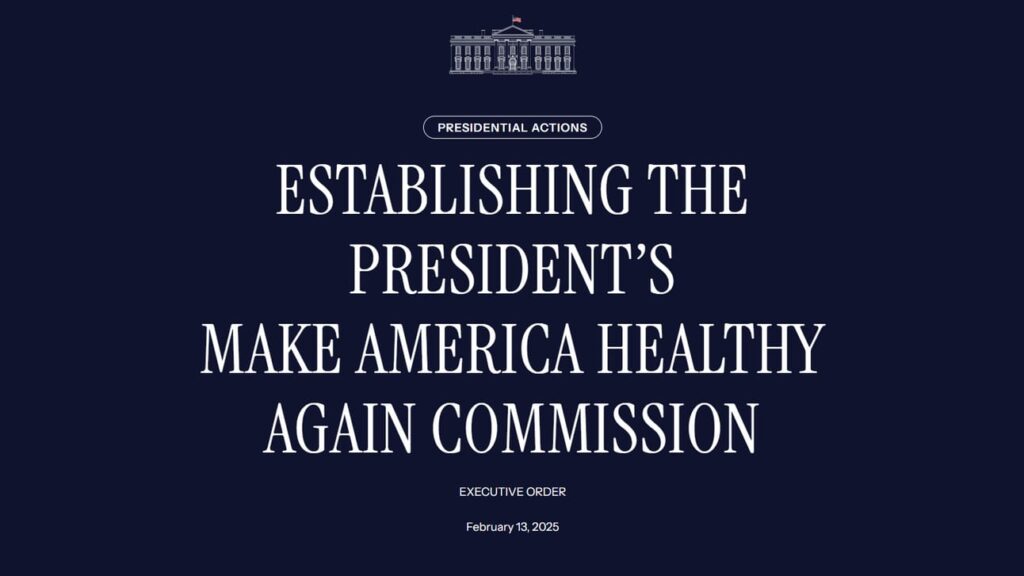It’s official, folks: Robert Kennedy, Jr. is your new Secretary of HHS. (More on that below.)
The next question: how long will he last? I want your guess. Here are the choices:
Less than 231 days. Tom Price, Trump’s first HHS secretary, didn’t make it a year.
231 days to 780 days. That’s the average tenure of Trump’s first cabinet.
780 days to 1,087 days. Alex Azar broke the 1,000-day mark as Trump’s second HHS majordomo.
1,087 to 1,403 days. 1,430 days was Xavier Becerra’s length of service. He was Biden’s only HHS secretary.
More than 1,403 days. Kennedy got confirmed faster than Becerra, so if RFK Jr. makes it the distance, he’ll surpass Becerra
Robert Kennedy Jr. is the new head of HHS. What happens now? You know the drill.
Still, there are some hints. You should probably read through yesterday’s executive order creating the “Make America Healthy Again Commission,” which Kennedy will lead. The first order of business will be producing a report on children’s health.
Two elements caught my eye.
The first is that the document spends a lot of time emphasizing disparities in health outcomes between the United States and peer countries and demanding that we address them.
Of course, the easy answer is that a lot of those poor health outcomes are most closely associated with socioeconomic factors. Want to get to the bottom of this issue? You’re going to have to confront equity issues. And we know how willing this administration is to go there.
Second, the report on children’s health will specifically go after prescription drugs, with a mandate to “assess the prevalence of and threat posed by the prescription of selective serotonin reuptake inhibitors, antipsychotics, mood stabilizers, stimulants, and weight-loss drugs.”
I don’t want to suggest that there’s no benefit in probing those questions. Indeed, a ton of research has been done there. But that research has been in the service of better understanding risks, benefits, and tradeoffs. That is a fundamentally different frame than an analysis to “assess the … threat.”
The language alone suggests there is a preordained conclusion. Not encouraging!
***
As for me, I’m still sticking by my Grand Unified Theory of RFK Jr., which I laid out right after his nomination in two parts.
At the core of the theory is the idea that Kennedy will encourage Americans to make their own health care choices, even as he takes away the resources, recommendations, experts, and nudges designed to help them make those choices.
What does that look like?
A New York Times story from Louisana gives a clue. The state has decided to just stop promoting vaccination. No health fairs. No media campaigns. Sure, they’re not yanking vaccines off the shelf, but they’re eliminating a lot of the substrate that encourages behavior that supports the public health.
In my podcast overview on Tuesday, I realized that I didn’t highlight a couple of excellent efforts by Friends of the Curve: Incubate’s “Making Medicine” pod and Leerink’s “Perspectives.”
This AIDS Institute report the details the state-by-state treatment of copay accumulators is an incredible resource. And it breaks down every ACA marketplace provider and the accumulator policies in those plans, too.
Here’s a smart Modern Healthcare piece on Cigna’s recent announcement of efforts to eliminate pain points for patients and providers caused by health insurance. It asks the question of whether other companies will follow its lead and details the balancing act that the company is undertaking: making beneficiaries and clinicians happier without accelerating spending.
HRSA has a boomerang: Tom Engels, who ran the agency between 2019 and 2021, is back in charge.
Cost Curve is produced by Reid Strategic, a consultancy that helps companies and organizations in life sciences communicate more clearly and more loudly about issues of value, access, and pricing. We offer a range of services, from strategic planning to tactical execution, designed to shatter the complexity that hampers constructive conversations.
To learn more about how Reid Strategic can help you, email Brian Reid at brian@reidstrategic.com.





